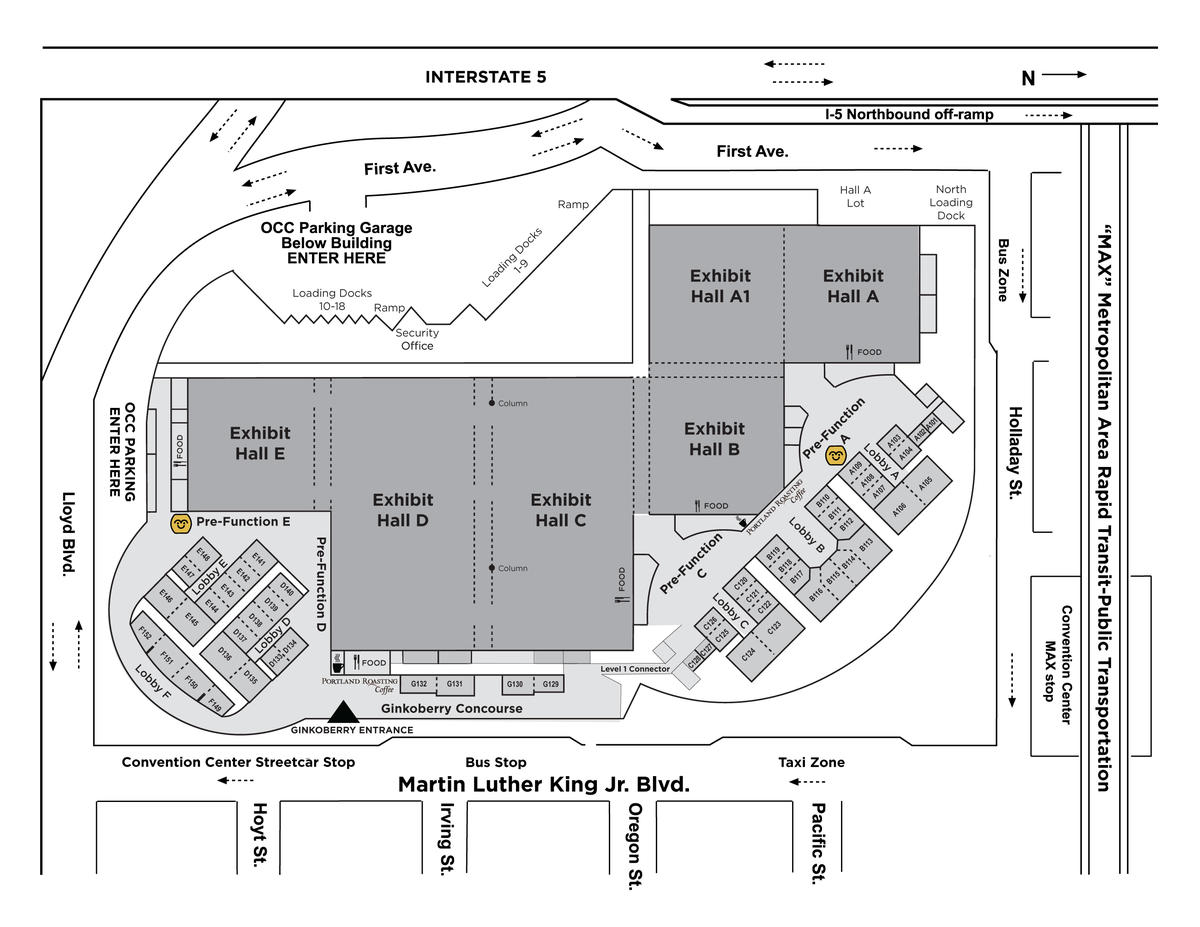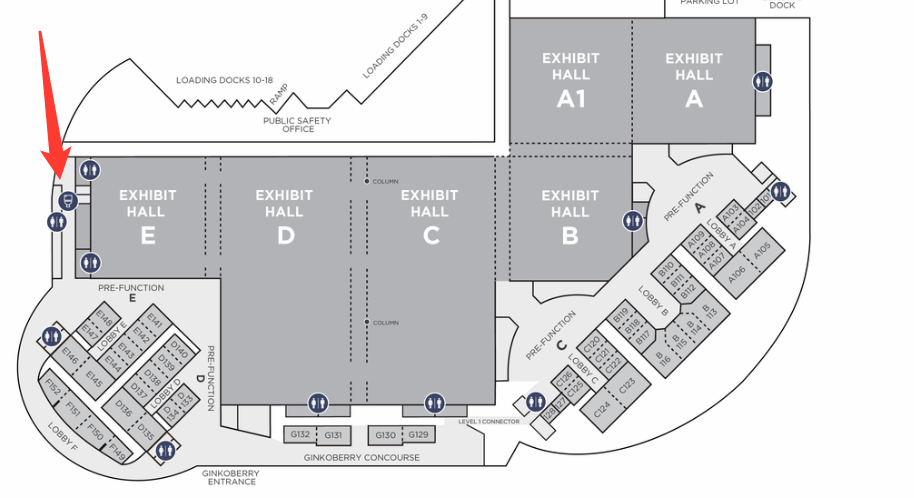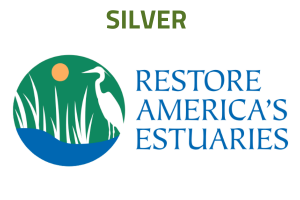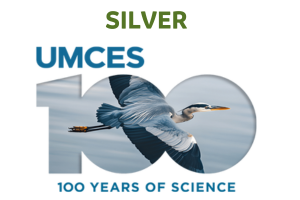Portland is known for being a vibrant and welcoming city. Travel Portland has collected many resources for those looking to support the local community; here are some highlights:
Opening Ceremony: Tribal Welcome and DEIJ Award
Speaker: Davis Washines/Yellowash
Sunday, 12 November | 7:00 PM – 8:00 PM PT | Portland Ballroom 253-254, 257-258
A traditional welcome and opening ceremony to the CERF Conference by Davis Yellowash, a member of the Yakima Nation.
In addition, please join us in celebrating DEIJ Achievement Award winner Tiara Moore, CEO of Black in Marine Science.
Keynote: Resilience Initiative for Coastal Education (R.I.C.E.)
Speakers: Albert George and John Carr
Moderator: Treda Grayson, U.S. Environmental Protection Agency
Sunday, 12 November | 7:00 PM – 8:00 PM PT | Portland Ballroom 253-254, 257-258
The keynote will discuss the power of community partnerships and engagement using citizen science and other innovative data visualization tools to mitigate climate change, sea level rise, and aquatic debris risks in traditionally underserved communities in the South Atlantic Bight region of the U.S.
Monday Plenary: Traditional Ecological Knowledge
Speakers: Brittani Orona, San Diego State University; Douglas Deur, Portland State University; and Samantha Chisolm Hatfield, Oregon State University
Moderator: Matthew Bethel, Louisiana Sea Grant
Monday, 13 November | 3:00 PM – 4:30 PM PT | Portland Ballroom 253-254, 257-258
This plenary session focuses on how Traditional Ecological Knowledge (TEK) is used in coastal resource management to build stronger engagement with coastal communities. Presentations and discussions will center on methods and techniques that use TEK for conflict resolution concerning complex multi-use resource issues in the coastal zone.
Wednesday Plenary: Social Inequities of Climate Change and Community Migration
Speakers: Gavin Smith, North Carolina State University and Patty Bohnee, Arizona State University
Moderator: Robert Twilley, Louisiana State University
Wednesday, 15 November | 3:00 PM – 4:30 PM PT | Portland Ballroom 253-254, 257-258
This session focuses on the social inequities of climate change and community migration as result of increased flooding occurrences in the coastal floodplain. The issues of community gentrification and equities in housing and land ownership as communities migrate is complex issue of environmental justice and coastal urban planning. Presentations and discussion will center on methods and techniques that use TEK to for conflict resolution concerning complex multi-use resource issues.
PANEL: Working across discipline and difference to address complex coastal issues
Speakers: Jennifer Sandoval, University of Central Florida; Meaghan Efford, University of British Columbia; Katrina Radach, Puget Sound Partnership; Lora Harris, University of Maryland Center for Environmental Science; and Fred Tutman, Patuxent Riverkeeper
Organizers: Kristy Lewis, University of Rhode Island and Jenni Schmitt, South Slough National Estuarine Research Reserve
Tuesday, November 14 | 11:30 AM – 1:00 PM PT | Portland Ballroom 251- 252
Demystify transdisciplinary marine research, emphasize the importance of diverse perspectives, which includes community and tribal involvement from problem identification to solutioning. We invite you to join us for a panel discussion on "Working across discipline and difference to address complex coastal issues," which aims to demystify transdisciplinary research and emphasize the importance of incorporating diverse perspectives, including those from communities and Tribes. Transdisciplinary research is an approach that aims to democratize knowledge across academic and non-academic stakeholders to effectively implement solutions to complex coastal topics. However, the United States is behind in applying this approach to solve complicated ocean and coastal related challenges, such as those arising from climate change. Significant community engagement is crucial in transdisciplinary research, where communities are involved in problem identification and remain active members of the research team throughout the duration of a project to shape socially relevant research. Our distinguished panelists will include leading researchers, coastal practitioners, community members, and Tribal representatives who will share their experiences and insights on the benefits and challenges of working across discipline and difference. They will highlight successful examples of working jointly with collaborators from other fields of study and discuss benefits and opportunities for impactful community and Tribal involvement in coastal research and problem-solving. The insights and experiences shared by our panelists will be valuable to researchers, community members, and decision-makers interested in collaborative processes and incorporating diverse perspectives into their work. Join us for this important panel discussion and learn how transdisciplinary research and meaningful community engagement can help address challenges that affect a variety of ecosystems and the social and economic systems that they support. We look forward to seeing you there!
Sessions
There are several DEIJ-related scientific sessions. In addition, we encourage presenters to make their presentations as accessible as possible for all audiences; some resources have been provided online.
Monday
Weaving traditional ecological knowledge (TEK) and coastal science for management application
Growing a diverse estuarine research and management workforce
Not just checking a box: inclusive communication as a tool to engage in resiliency
Building resilience in communities, programs, and the workforce through inclusion
Tuesday
Stories from the braided river: nonlinear, enriching workforce pathways and narratives in coastal science and management
Transdisciplinary approaches to support coastal community resilience: interactions between natural, human-built, and social systems
Wednesday
Artistic pathways to scientific understanding
Coproduction with diverse stakeholder engagement for coastal ecosystem management
Thursday
Community engagement initiatives for increased coastal resilience
Ecological and social connectivity in coastal ecosystems
Coastal community science: building capacity and capability for resilient and sustainable stewardship
All things climate. All the time. Weaving climate mitigation and adaptation into all aspects of coastal ecosystem management programs
Co-design of community science projects for coastal resiliency
Workshops
You must register in advance to participate in a workshop. You can sign up during registration, or contact the CERF Office ([email protected]) to add a workshop to your existing registration.
Fostering Inclusive Fieldwork Experiences
Presenters: Anjali Boyd, Duke University, and Tregyn Toone, North Carolina State University
Sunday, 12 November | 10:00 AM – 12:00 PM PT
Across all disciplines, fieldwork can present unique challenges, such as working in remote locations or sharing accommodations. Whether you’ve recently entered the field, or you’re managing large research groups, this workshop is for you! This two-hour panel and breakout discussion will cover best practices for fostering inclusive and safe field experiences among researchers and students of all identities. Topics will include field safety considerations; physical and financial access to field environments; accessible field equipment and attire; fostering an open and safe culture of dialog about concerns in the field; and potential steps for furthering inclusivity in your own work. To enrich our breakout discussions, attendees are asked to come prepared with a few examples of positive fieldwork experiences and/or successful strategies for enhancing inclusive fieldwork. Following the workshop, hosts will compile a resources document including main takeaways from panelists and breakout discussions to be shared with all participants.
Removing Barriers for Students in CERF Disciplines: Tools for Advocacy
Presenters: Alice Besterman, Towson University, and Kailani Acosta, Columbia University
Sunday, 12 November | 1:00 PM – 4:00 PM PT
Broadening participation in CERF sciences begins with students and the allies who support them. But implicit assumptions and associated structural barriers limit recruitment and retention of students with diverse identities and backgrounds. Encouragingly, many students and allies have begun taking action to identify and remove these barriers. In this workshop, we will take a focused look at structural barriers, advocacy, and actions taken by and for undergraduate and graduate students, faculty, and other professionals who support them. This workshop will involve interactive activities, a panel discussion with invited speakers, and group discussions to highlight and share tools used in advocacy. Attendees will gain skills in identifying and describing structural barriers, and learn about specific actions to remove barriers and improve participation in CERF sciences. Panelists will span multiple career stages, and discussions will include advocacy actions from all career pathways.
Food for Thought: How Coasts Nourish Our Bodies and Communities
Presenters: Brooke Carney, National Sea Grant Office; Amara Davis, National Sea Grant Office; Kelly Samek, National Sea Grant Office, Davin Holen, Alaska Sea Grant, and Matt Bethel, Louisiana Sea Grant
Sunday, 12 November | 9:00 AM - 1:00 PM PT
This dynamic session will pair a live food demonstration with storytelling and moderated discussion on the intersections of foodways, culture, coastal communities, diversity, ecology, traditional ecological knowledge, equity, and accessibility. The panel will include community partners, researchers, and science extension specialists representing the Pacific Northwest region sharing their experiences of how food connects us to place, supports culture and commerce, can promote sustainable resource use, and reveals societal flaws. Case studies and discussion are likely to touch on such important questions as: how can research inform policies to protect subsistence practices and help preserve traditional and/or local knowledge?; how is food an indicator of healthy coastal ecosystems?; and, can we ensure equity in access to food while promoting new food-based commercial endeavors such as tourism? Attendees will have the opportunity to leave behind their own stories of food and coastal culture as well as take home recipes and insights on food as an indicator of community well-being.




